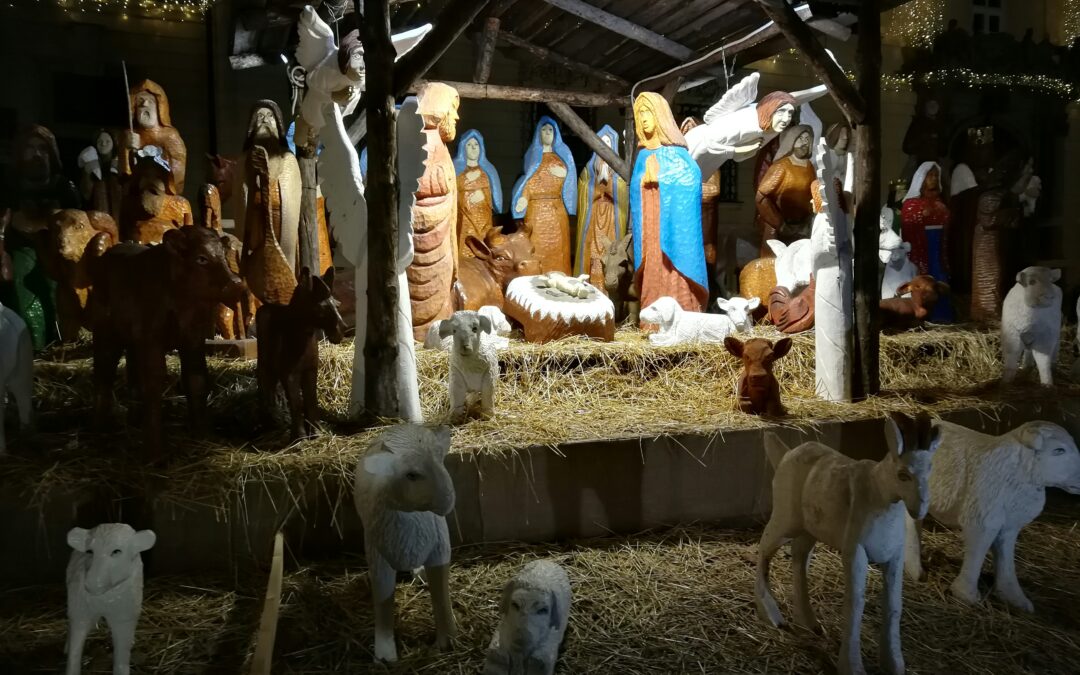The Christmas story is a narrative all about expectations – some met, some disappointed, some exceeded. Luke 1 begins, “In the time of Herod king of Judea” (v.5). The Narrative in Luke 2 begins with definite pollical undertones: “In those days Caesar Augustus issued a decree that a census should be taken of the entire Roman world. (This was the first census that took place while Quirinius was governor of Syria).”
For the First Century Jew, the primary problem that was expected to be solved by the coming of the Messiah was a political problem. The Romans occupied the promised land. The government installed by Caesar was not holding true to Jewish law or customs. The coming King would be one who would save Israel from their sins and their oppressors. These expectations seem to be perpetuated in the angel’s pronouncement to Mary: “The Lord God will give him the throne of his father David, and he will reign over Jacob’s descendants forever; his kingdom will never end” (1:32-33).
Strewn throughout the Christmas narrative are myriad other expectations (this is a sample):
- “He has brought down rulers from their thrones but has lifted up the humble. He has filled the hungry with good things but has sent the rich away empty” (1:52-53).
- “Salvation from our enemies and from the hand of all who hate us” (1:71).
- “To give his people the knowledge of salvation through the forgiveness of their sins” (1:77)
- “Glory to God in the highest heaven, and on earth peace to those on whom his favor rests” (2:14)
- “A light for revelation to the Gentiles, and the glory of your people Israel” (2:32).
It is fair to say that Jesus’ subsequent life, ministry, death, and resurrection simultaneously met, disappointed, and exceeded the expectations of his contemporaries, disciples, and even inquirers and followers right up to our present time. Jesus did not turn out at the time to be the political deliverer from Roman rule. He did certainly bring salvation and forgiveness of sins, a light of revelation to the Gentiles. The promise of a king who will rule and reign here on earth with righteousness and justice is still our long-awaited hope.
Isn’t this just the perpetual invitation of the scriptural story? To have our expectations, hopes and dreams constantly reframed – to be reminded that the greatest problem of human history is not an earthly government, a set of circumstances, or even the fulfillment of our own greatest ambitions and hopes. The great crisis of Christmas and today is that God desires for his presence to flood the whole earth, as we often pray in the Lord’s prayer, that His kingdom would come and His will would be done on earth as it is in heaven.
The problem directly addressed by Luke at the beginning of the gospel is “that we may know the certainty of the things that we have been taught” (1:4). It is that there is a whole world full of people who are loved by God and created in His image who have not heard nor had an invitation to believe the Good News. A Savior really was born in Bethlehem in Judea. He really is the Son of God and the Son of Man. His birth really was the turning point of all of history. He really does offer forgiveness of sins, abundant life, and the gift of the Holy Spirit to all who would call on His name.
Let’s resist the urge, family, to become distracted by other expectations, hopes and ambitions. What if the harvest is plentiful in Canada right now[1]? What if all around us, people are becoming disillusioned with the Canadian dream of a lifelong career, working one job, owning our dream home, retiring by 65 (evidence suggests that they are[2])? What if the materialistic disappointment of the culture’s vision of the holiday season is just one more reason for people to come searching for real hope and meaning?
Eugene Peterson’s paraphrase of 1 Peter 3:15 is so appropriate for the season we are in: “Through thick and thin, keep your hearts at attention, in adoration before Christ, your Master. Be ready to speak up and tell anyone who asks why you’re living the way you are, and always with the utmost courtesy.” Let’s live those kinds of lives this Christmas season, the kind that raise questions about the way we get to live because our hearts find their hope and fulfillment in Jesus the Messiah
[1] https://www.winnipegfreepress.com/arts-and-life/life/faith/2025/10/04/quiet-revival-for-gen-z
[2] https://imaginecanada.ca/en/360/canadians-are-facing-tough-times-but-there-are-reasons-to-be-optimistic


Recent Comments